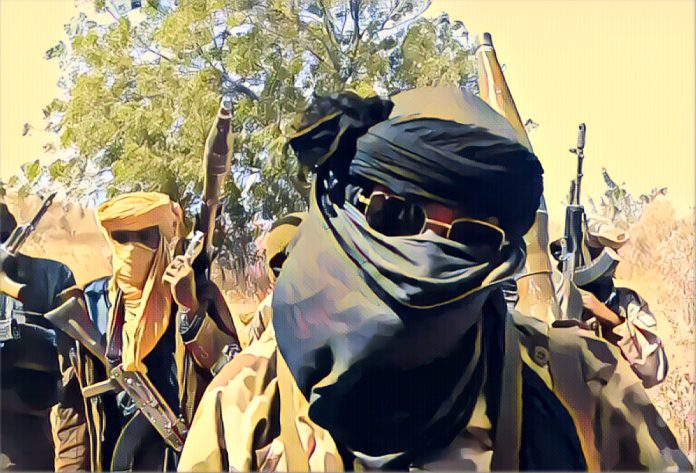Nigeria is facing a surge of kidnappings by armed bandits who target schools and villages in the northwestern and central regions of the country. The latest incident occurred on Thursday morning, when gunmen stormed a primary school in Kuriga, a community in Chikun Local Government Area of Kaduna State, and abducted over 200 students and teachers.
According to a local resident who spoke anonymously, the bandits surrounded the school premises and forced the children and staff to march towards the northeastern part of the community. He said the bandits shot one student, Rabilu, who was rushed to the hospital and survived. He also said the entire community was in disarray and fear, as every household was affected and many people were considering fleeing the area.
The Kaduna State government confirmed the attack and said it was working with security agencies to rescue the victims. A statement by the state commissioner for internal security, Samuel Aruwan, said the governor, Nasir El-Rufai, condemned the attack and urged the security forces to intensify their efforts to secure the release of the captives.
The Kuriga attack is the latest in a series of mass kidnappings that have plagued Nigeria in recent months. In December 2020, more than 300 schoolboys were taken from their boarding school in Kankara, Katsina State, by bandits who later released them after negotiations with the government.
The Rising Tide of Kidnappings
In February 2021, another group of bandits seized 27 students and 15 staff members from a school in Kagara, Niger State, and freed them a week later. In March 2021, gunmen abducted 39 students from a college of forestry in Afaka, Kaduna State, and 279 schoolgirls from a school in Jangebe, Zamfara State. While the Jangebe girls were released after four days, 29 of the Afaka students are still in captivity as of the time of writing this report.
The motives behind these kidnappings are not clear, but some analysts believe they are driven by economic and political factors. The bandits, who are mostly young men from nomadic and rural communities, are said to be frustrated by poverty, unemployment, and marginalization.
They also exploit the weak security situation and the porous borders in the region to carry out their attacks and demand ransom from the government or the victims’ families. Some observers also suspect that the bandits have links with Islamist militants, such as Boko Haram and the Islamic State West Africa Province (ISWAP), who have been waging a decade-long insurgency in the northeast of the country.
The Nigerian government has been criticized for its inability to stop the kidnappings and protect the lives and property of its citizens. President Muhammadu Buhari, a former military ruler, has repeatedly vowed to end the insecurity and restore peace and stability in the country. However, his efforts have been hampered by corruption, poor governance, and human rights violations. The president has also faced calls to sack his service chiefs and overhaul the security architecture of the country.
Hope Amidst Crisis
The kidnappings have also sparked outrage and protests from civil society groups, human rights activists, and religious leaders, who have demanded the immediate and unconditional release of the abducted students and teachers. They have also urged the government to address the root causes of the violence and provide adequate education, health, and social services to the people. Some of them have also called for dialogue and reconciliation between the bandits and the communities they terrorize.
Despite the grim situation, there are some signs of hope and resilience in the face of the kidnappings. Some of the freed students and teachers have shared their harrowing experiences and expressed their determination to continue their education and pursue their dreams. Some of the parents and relatives of the victims have also shown courage and solidarity in their quest for justice and reunion. The local and international organizations and individuals have also offered support and assistance to the affected communities and schools. These are some of the glimmers of light that shine through the darkness of the kidnappings.
Source: Vanguard



